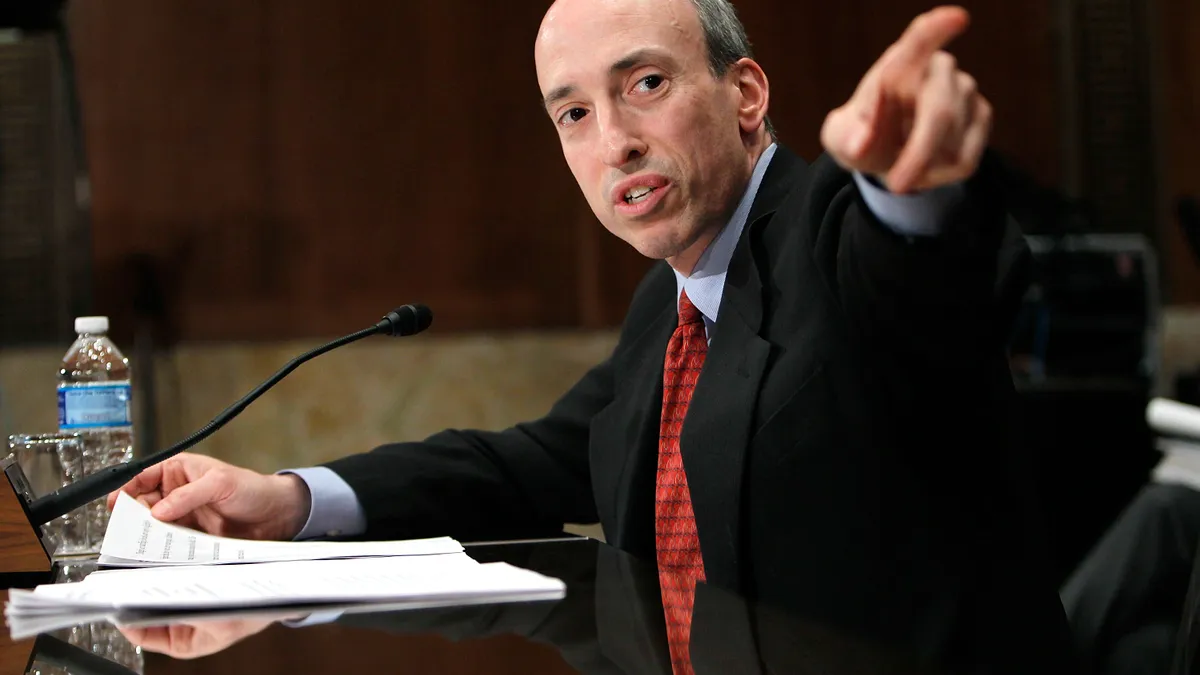Dive Brief:
- The Securities and Exchange Commission (SEC) Wednesday adopted new rules that will require publicly-listed companies to recover “erroneously” awarded incentive-based pay received by current or former executive officers during the three-year period preceding an accounting restatement due to “material noncompliance,” according to an SEC release.
- Clawback rules, which stem from the 2010 Dodd-Frank law passed after the financial crisis, were previously proposed in 2015 and most recently reopened for comment in June. Under the new rules, listed companies will be required to file written compensation recovery policies along with their annual reports, the SEC said.
- “Through today’s action and working with the exchanges, we have the opportunity to fulfill Dodd-Frank’s mandate and Congress’s intention to prevent executives from keeping compensation received based on misstated financials,” SEC Chair Gary Gensler said in a statement.
Dive Insight:
The new rules come amid a broader push by the SEC for more transparency and disclosures in financial reports. In August the SEC adopted a regulation requiring U.S. public companies to disclose more details around executive compensation and companies’ performance.
The clawback rules extend to material misstatements that stem from errors. That element drew some of the main objectives to the proposal, according to Howard Berkenblit, an attorney and head of the capital markets team at Boston-based Sullivan & Worcester.
While many companies voluntarily have their own clawback policies in place, the fact that the new regulations can be triggered by mistakes rather than fraud will be a change, Berkenblit said. “Many restatements are not the result of fraud, they’re just mistakes so that will be an adjustment,” Berkenblit said in an interview.
However, the underpinnings of the new rules have largely been anticipated since the SEC reopened the matter and they should be fairly straightforward in terms of their application, he said.
After companies determine that a financial metric is incorrect and needs to be restated, they then need to determine if those restatements would have impacted the bonus incentive of executive officers, he said.
The company would then figure out if the bonuses given would have been been smaller if that error had not occurred, he said. “If the answer is yes…then the recoupment has to be of the difference, the delta, between what they actually got and what they should have gotten,” he said.
The SEC stated the final rules well become effective 60 days following publication in the Federal Register. But Berkenblit said it will take some time before they are fully in effect and that companies will likely have until the spring of 2024 to begin filing their policies. “They’ll have plenty of time to get ready,” he said.












